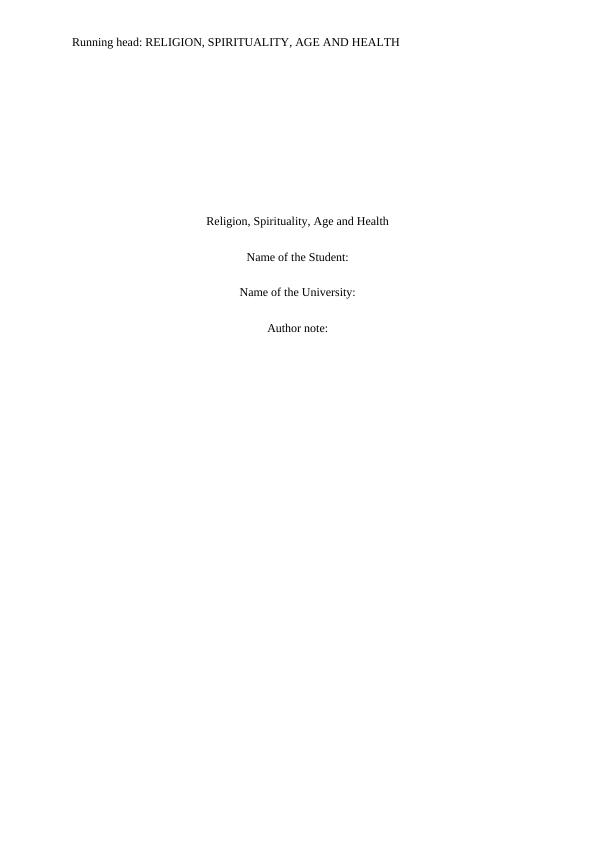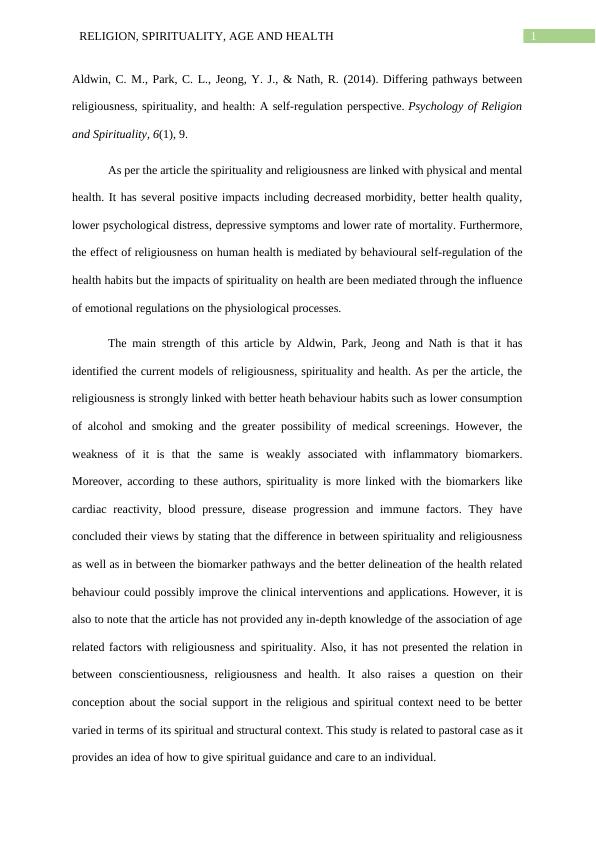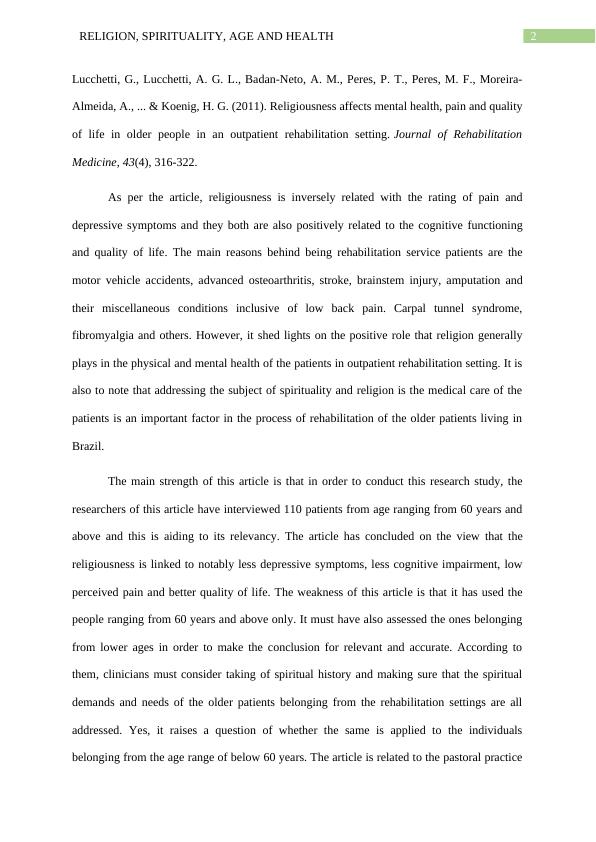Religion, Spirituality, Age and Health
6 Pages1835 Words410 Views
Added on 2023-06-09
About This Document
This article explores the link between religion, spirituality, age and health through research studies. It discusses the impact of religiousness and spirituality on physical and mental health, including decreased morbidity, better health quality, lower psychological distress, depressive symptoms and lower rate of mortality. The article also highlights the differences between religiousness and spirituality and their respective impacts on health. The study is related to pastoral care as it provides insights into how to give spiritual guidance and care to individuals.
Religion, Spirituality, Age and Health
Added on 2023-06-09
ShareRelated Documents
End of preview
Want to access all the pages? Upload your documents or become a member.



